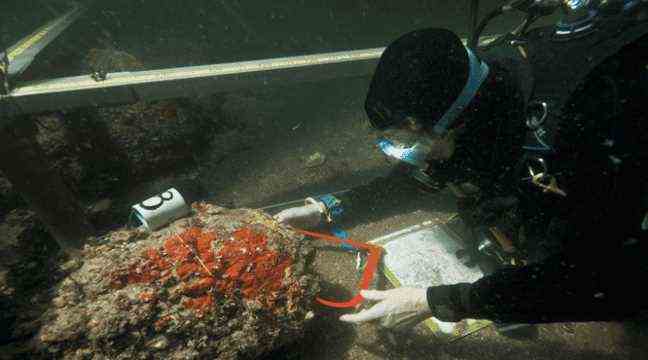She was still in coveralls, her hair wet when she picked up her phone. Specialist in underwater archeology, Anne Hoyau-Berry had just come back from a dive in the waters of the Rance when she began to answer our questions. Member of the Association for the Development of Research in Maritime Archeology (Adramar), she has been participating since Monday in an archaeological excavation campaign carried out near the Rance hydraulic dam connecting Saint-Malo to Dinard (Ille-et-Vilaine).
The goal? Uncover the mystery of the wreck called ZI24 which rests at a depth of about fifteen meters. “ZI24 is the name of the buoy which is located right next to it. It means forbidden zone 24 ”, slips Anne Hoyau-Berry.
A “very rare” design
Due to the very strong currents generated by the electricity production plant located next door, navigation is normally prohibited there. She and her team of six divers only have a few daily slots to dive. Until the beginning of October, their mission will be to take a maximum of wood samples from the mysterious wreck: “It has still not been identified and its dating is not precise. It is estimated to date from the 18th century but we do not know more. ”
A specialist in artillery, the Breton archaeologist is particularly interested in the 11 cannons that are aligned on the side of the 35 m long boat built in wood. “We do not know if it was an artillery transport, a means of defense or a simple use as waste to ballast the ship. We’re looking for clues. “
A “sucker” which sucks up sediment
If this wreck is of great interest to researchers, it is also because it displays very specific characteristics, in particular a very solid construction, “which was rare at that time”. Using a “sucker” which sucks up the sediment, the seven divers try to clear the remains of the boat, hoping to find archaeological furniture or wooden elements, the rings of which would perhaps make it possible to date the sinking more precisely.
The exploration of the bottom of the Rance should last until the beginning of October.

